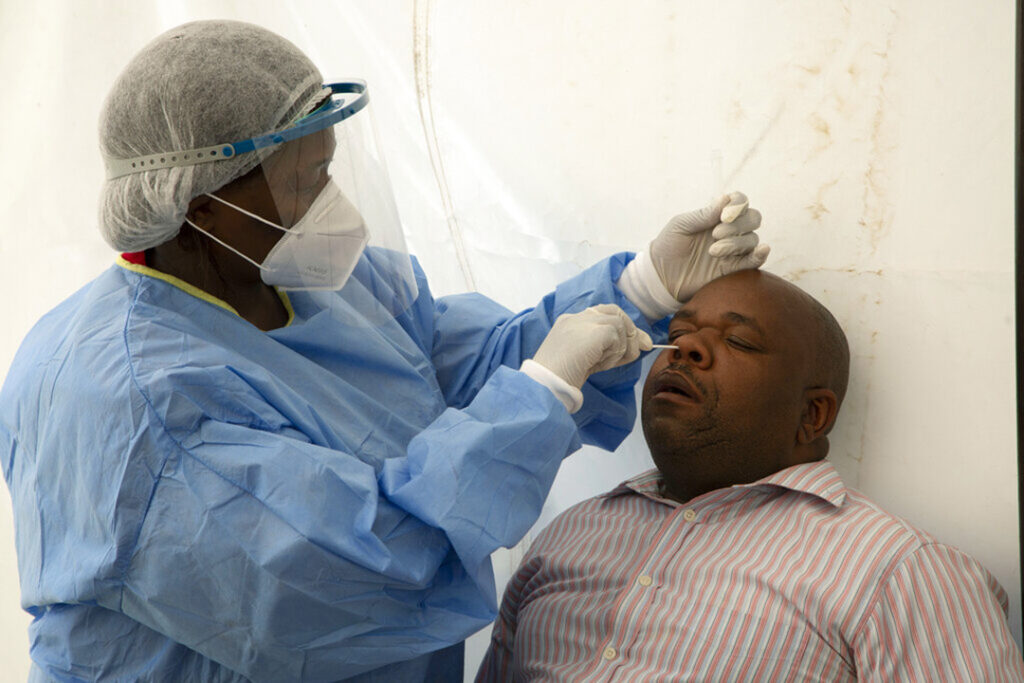ADF STAFF
Scientists studying the long-term health effects of the COVID-19 pandemic say they have found that the disease triples the risk of Alzheimer’s disease and doubles the risk of developing Parkinson’s disease — two neurological conditions that already were rising in Africa before the pandemic began.
A new study by Danish researcher Dr. Pardis Zarifkar looked at the health records of about half the population of Denmark and found that COVID-19 survivors reported many symptoms commonly associated with the eventual development of Alzheimer’s, Parkinson’s, and other neurological diseases.
“Previous studies have established an association with neurological syndromes,” Zarifkar wrote in her study. “But until now it is unknown whether Covid-19 also influences the incidence of specific neurological diseases and whether it differs from other respiratory infections.”
People in the study who recovered from COVID-19 were 3.4 times more likely to develop Alzheimer’s disease and 2.2 times more likely to develop Parkinson’s disease than those who never had COVID-19. Patients ages 80 and above also were 1.7 times more likely to develop ischemic strokes.
“I would have expected a small increase, but the extent of the increase was quite surprising,” Zarifkar told Medscape Medical News.
A 2020 study found one of the earliest associations between COVID-19 and early-onset Parkinson’s disease among patients ages 35, 45, and 58. All three had severe cases of COVID-19 and showed classic signs of Parkinson’s disease without having a family history or genes that might trigger the disease.
“If this link is real, we might be in for an epidemic of Parkinson’s disease in the future,” researcher Dr. Patrik Brundin, director of the Center for Neurodegenerative Science at Van Andel Research Institute in Grand Rapids, Michigan, told Medscape Medical News at the time.
Parkinson’s disease takes different forms. The most common symptoms are tremors in the arms and legs and stiffness in other muscles. Patients eventually can develop dementia.
Brundin suggested that Parkinson’s disease and other neurological conditions could be the ultimate outcome of long COVID, the collection of symptoms such as brain fog and fatigue reported after some people recover from COVID-19 infections.
The increased risk created by COVID-19 mirrors the risks associated with influenza or bacterial pneumonia, Zarifkar found.
Zarifkar’s study was released about the same time that South African health officials revealed their estimate that 98% of the country’s population has been exposed to COVID-19.
The Africa Centres for Disease Control and Prevention reports that nearly 11.2 million people across the continent have recovered from COVID-19 infections.
Historically, there is a lack of data on Alzheimer’s, Parkinson’s and similar diseases among Africans. Africa also has an extreme lack of neurologists — 0.03 neurologists per 100,000 residents, compared to the World Health Organization recommendation of 1 per 100,000.
“This limited access to neurologists leads to underdiagnosis and treatment of patients with neurological disorders such as PD (Parkinson’s disease),” South African neurologist Dr. Marcelle Smith wrote in a recent article published by World Neurology, the newsletter of the World Federation of Neurology.
Researchers say the continent’s extremely young population might reduce the numbers of such diseases, which typically are associated with old age.
However, Zarifkar’s research could have implications for Africa’s population, in which recent studies show that rates of neurological disease, while lower than in Europe or North America, are rising.
“As life expectancy of African populations increases, the increase in the aging population may translate into an increased burden of degenerative disease such as Parkinson’s disease,” Smith wrote in a recent review of Parkinson’s disease research on the continent.
That could pose a particular risk to black Africans, who show more risk of early-onset Parkinson’s at ages younger than 50, compared to other racial groups on the continent, according to Smith.
Zarifkar noted that health systems need to be prepared for increased cases of Alzheimer’s, Parkinson’s and other neurological conditions among those who have recovered from COVID-19 infections.
“Due to the sheer prevalence of the recent infections, it is likely baseline rates of these neurological disease will rise around the world over the coming years,” she said.

